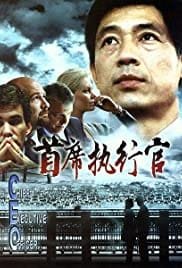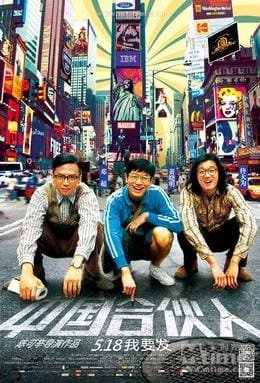I used to unthinkingly draw lessons from movies and unserious contents. This post talks about one experience and my reflection.
In 2018, a Chinese entrepreneur recommended a movie to me and hoped that I could join him in his effort to create an international Chinese business while I was pursuing my studies and life overseas. He thought I was too much buying into western ideas and he was proud of his Chinese culture and society, though not of the state.
The movie is named C.E.O. In it a co-founder of the Haier company left the firm during an operational crisis and joined an American firm in the US. Haier’s executives, born in China with Chinese wisdom, saved the company and made it an international success. They decided to open a factory in the US and one day, in a supplier’s meeting, the CEO of Haier, Min, came across the old friend and colleague, Wang, in his supplier’s office. Wang didn’t have a high position in this American company and he was humiliated by the fact that Haier became a successful company, which he was a part of and now Min is talking to his boss. Wang was embarrassed but not Min. Min offered Wang a position in the company, much to the surprise of Wang. He took it and did a good job in helping the firm grow further.

The idea of this movie resonates with another movie that I saw almost six years back. The movie American Dreams in China was about the story of three Chinese young people starting an educational company that helps Chinese students study in the US. The three all had a dream to study in the US and all of them realized their dream. Their life diverged and converged again in the movie. After finishing their studies, one protagonist, Chen, went back to China and started his company. The company was growing fast and brought Chen much fame and wealth.

On the contrary, Meng decided to stay in the US. He didn’t secure a good job. He worked as research assistant and even in restaurants. He knew that his friend’s company is doing well and he had the skill to contribute to that company. But out of shame he decided to stick with his choice. He didn’t want his friends to know his poor life in America, a life dreamed by many people in China (at least in the movie’s setting).
But one day, Chen went to the US and coincidentally came cross Meng and Meng felt ashamed. But Chen cared nothing but their friendship. Chen offered Meng a top position in his company and Meng accepted. Their success was unstoppable and the company was finally listed on NASDAQ.
These two movies all had some deep connotation in the context of Chinese culture and society. Many Chinese see the US as a dream country and wanted to study and live there. Many even had their American dream. The movies conveyed an idea that Chinese is no inferior to Americans and that Chinese can pursue their dream as much as the Americans. Through the sharp contrast, audiences can draw the conclusion that America is no fairytale land. People can fail in it as well.
But they also had a bitter connotation that was easily discernible by the audience. It fulfilled people’s bitter envy towards those successful Chinese who made into the US and became rich as a result. Very much like the poor enjoy seeing a rich man lose his beloved ones hopelessly, people living in China, with censored information, were also happy to see that those fight their way to the US failed in the end.
That is what I felt after watching these two movies. A few years ago, I also read an article circulating popularly in China, about the career of Chinese university graduates. For a long time, perhaps from 1980 to 2010, foreign companies were the target of majority of Chinese graduates. These companies had higher pay, freer working culture, job security and an exotic appeal. On the other hand, domestic firms were not attractive to them.
Yet those who joined domestic firm is now winning a lot more than those in foreign firms, the author went on. Chinese tech companies like Tencent and Alibaba, Baidu and NetEase flourished in these years. They have become billion-dollar firms, listed in the US and served billions of people. Those graduates, who were “unfortunate” to end up with these domestic forms, have seen a much more rapid career development, and wealth accumulation, as their company’s stock price increased. In hindsight, they made the right choice.
Hence, the author claims, and the readers happily accord, that those who blindly went for foreign firms suffered and those stick with our own companies, and hence with the Chinese nation, benefited in the end. I finished reading that article with happiness and pride. I believe many Chinese felt the same way, as evident in the popularity of the films and articles. But now, I think that was merely bitter laugh: those who got what I couldn’t get failed. Lucky me that I didn’t go for it and hence didn’t get it.
Bitter lough is not a good laugh. It makes people cynical. At the same time, these ideas reinforce patriotism. It is a happy ending. Without feeling shame and pity, we gave up the things that we actually wanted, a job in a foreign firm, studying and working in a dream country; moreover, we get something even more valuable: our national pride and confidence. How liberating it is for those whose grade was too low or English too poor or simply too poor to study and work in their dream country!
Today I read the story of Eric Yuan. His story made me reflect on a series of beliefs that I have been unconsciously harboring in my life. I thought I had a clear mind and ability to do critical thinking when I saw these movies and opinions, as I have read a number of critical thinking books and attended some courses. Yet I easily fall slave to that line of argument.
The problem here is that these movies and articles told powerful stories that exploited our psychological weakness. They gave what we want, they acknowledge and satisfy our inner voice. Of course, they also committed some logical fallacies not so easy to spot out.
Let’s talk about the logical weakness of these stories. I won’t call them arguments because they weren’t serious effort to objectively convince people in the first place. Here I just want to make people realize how silly it is to take these kinds of narratives seriously.
To use a statistical term, these stories have a selection bias. They were not representative. They didn’t reveal the whole picture. Worse, they picked the least accurate part of the picture to distort the truth. Many who moved to the US changed their life for good. They enjoyed their life there. Of course some will fail, but so will many Chinese firms. Not every Chinese firm can go as big as Haier. Most fundamentally, a single case can hardly, if ever, warrant the level of acceptance many are ready to give. Yuan‘s story is a good counter-example. He went to the US, after seven failed VISA attempts, and became a billionaire by founding Zoom, a communication tool. He is successful in the eyes of majority of Chinese people. When weighted with this new evidence, the plot in these movies no longer convince us as much as they did when standing alone.
In addition, the contrast effect really made these stories powerful. When we congratulate the success of Haier and the educational company, we feel pity for those who chose otherwise. This essentially evokes audience’s sense of fear of being left out. People fear and hence can easily forget the fact that both the success and failure of the protagonists were extreme events. Exaggeration is good for art, but not logic.
Moreover, should we really think that Wang, the one left Haier for an American company, less happy? He had no stock in his employer’s company, he wasn’t promoted to a high position as he would be in Haier. But he has been enjoying a different life for very long. It is quite a Chinese value to look down the poor and the ones below them. In the American culture, both Meng and Wang shouldn’t feel shame about their lives and they should be treated equally. It is perhaps only in the eyes of Chinese people that the value judgment of these movies is justified and not uncomfortable.
Hindsight is another big issue in these stories. Oh, Wang and Meng should have done this and that, they should have loved their own country, a rising pearl in the east. They should have stuck with their own country and nation. But who knows that Haier was to become a multinational and profitable firm? Who knows that China will score an unprecedented economic miracle for more than 30 years? It is not that Wang and Meng and those joined foreign companies weren’t wise. They made their choices with the information available to them back then. Wang didn’t know whether Haier will succeed; Min didn’t know for sure either. There are plenty of cases where a company falls into crisis and never get out of it. It doesn’t matter whether it is a Chinese firm or American firm or whatsoever. Besides, those graduates that joined Chinese startups weren’t any wiser either. They simply took higher risk and were rewarded with higher return.
It is easy for us to decide between options when we don’t have to consider risks. It is like choosing between lottery A that pays $1,000 with a probability of 50% (and zero with a probability of 50%) and lottery B that pays $10,000 with probability 1.5%. Suppose Wang chose lottery A and Min lottery B. Both won, Wang won $1,000 and Meng $10,000. Oh, how stupid Wang was and how wise Min! In hindsight, we tend to forget the risk, which is an important factor for those making the decisions in the past.
These were just movies and some non-scientific writings. They are powerful in changing people’s attitude and behaviour, unconsciously. Nevertheless, let’s don’t treat these anecdotes seriously and draw too many lessons from them.